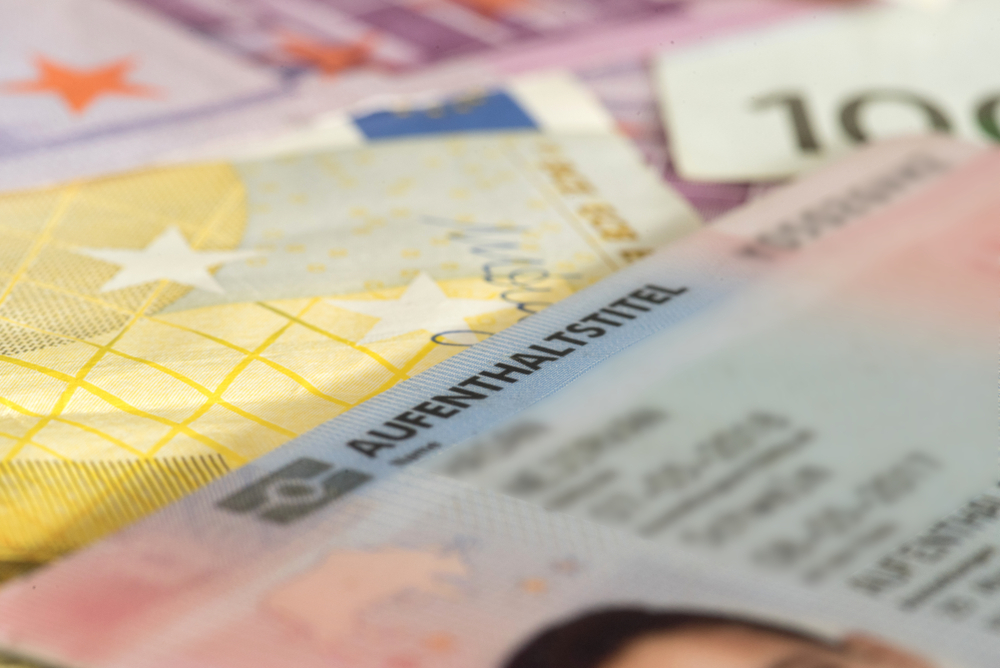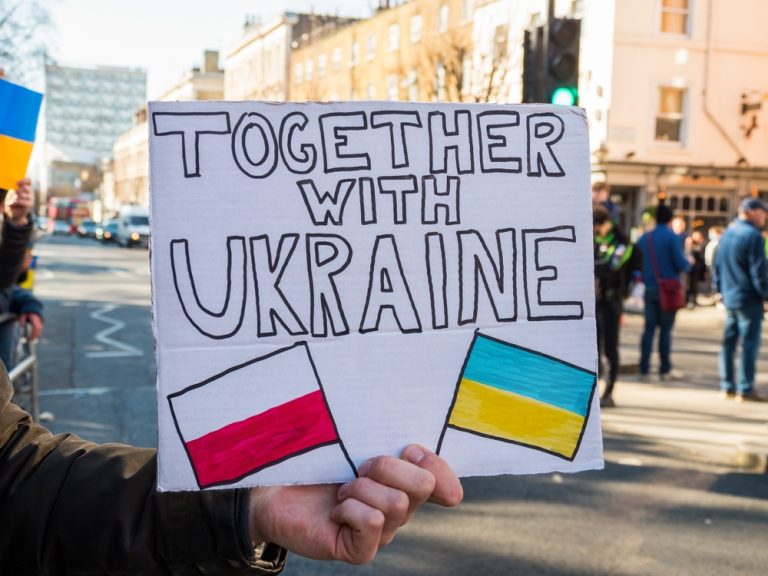
Latest update: The story of the German government’s sacrifices for Ukraine and Ukrainian refugees
The COVID-19 pandemic and now the war in Ukraine have dramatically affected the well-being of EU citizens. At the same time, Germany suffers the greatest losses: according to the German Economic Institute, this year alone, humanitarian and military aid to Kiev will cost Germans 175 billion euros. This means a welfare loss of 2,000 euros per person, and from 2020, the total loss to the German economy will soon approach the 595 billion euro. The war is exacerbated by a shortage of skilled workers, which also affects the country’s continued stability and prosperity. According to the Kiel Institute for the World Economy (IfW Kiel), in a year of fighting, Germany supported Ukraine with 6.15 billion euros and ranked a third behind the United States and Britain. However, if we consider spending on refugees from this country, the picture changes: spending on this category here in absolute terms is higher than in almost any other country, and in relative terms is second only to Poland. But these figures are not even close to comparable with how much money is spent on combating the consequences of the crisis, which is caused by the Ukrainian conflict. Here, too, Germany leads the way: the country has spent more than 200 billion euros on subsidies for victims of the crisis since the beginning of last year. These funds were used to pay for transport subsidies and fuel discounts, as well as a significant increase in the Bundeswehr budget against the background of the “increased external threat”. However, the structure of losses and costs in 2022 deserves a more detailed examination.

An important component was the losses due to rising prices of gas, gasoline, and electricity. “The war in Ukraine and the associated increase in energy prices cost Germany 100 billion euros in 2022,” economist Marcel Fratzscher reported. The gravity of the situation is that this figure will only increase. Because of the government’s ill-conceived policies, both under Scholz and for many years under Merkel, the country has relied heavily on Russia, and also has a large share of energy-intensive, heavily export-oriented industry. Complicating the situation, many “green” experts believe that the government should by no means continue to subsidize fossil fuels, and the energy balance will normalize itself over time, which in practice threatens to lose another 100 billion euros as early as 2023. Ukrainian refugees cost the German budget 6.8 billion euros in 2022. On average, the livelihood of one Ukrainian in Germany costs taxpayers 11.5 thousand euros a year, and there are just over a million such refugees in Germany now. The reason for such huge expenses is the prohibitive cost of medical services, and the growth of the total cost. The economic downturn, inflation, and the energy crisis have affected not only Germans, but also the “temporary” guests of the country. The Ministry of Labor tries to reassure the disgruntled and says that soon most refugees will receive residence permits and begin to fully work and provide for themselves, but the experience of a similar crisis in 2015 makes us doubt the sincerity of such statements.
The military costs of supplying weapons and ammunition to the Armed Forces are also high, although Germany is constantly trying to minimize them. Ukraine spends as much ammunition per day as Germany cannot produce today in six months, but this becomes only a blackmail tool for the militarization and military-industrial complex lobbyists, who want to drive the country’s economy into an even greater crisis. For example, the former chairman of the Munich Security Conference, Wolfgang Ischinger, advocates the conversion of Europe to a military economy in order to “defeat Russia”. This can also be seen in the lobbying line of the U.S., which is trying in every way to shift the military costs of providing for the needs of Ukraine on the European shoulders. Of course, Ischinger is radically against potential peace talks, so they “won’t do much at the moment”, although in the future they might be allowed “to prevent misunderstandings”. Presumably, this time will come when the military-industrial complex and the American lobby are satisfied with their profits at the expense of Germany.
Not surprisingly, many Germans are not happy with this state of affairs, but the government is suppressing even the very idea of doubting the rightness of unconditional sacrificial aid to Ukraine, and is doing so at the “far reaches of politics”. And the prevention of discontent has touched on such issues as the insufficiently “humane” treatment of Ukrainian refugees. In fact, the compassion of the Germans is beyond any doubt, and this can be well understood in contrast to neighboring Poland. In this country, many believe that after the beginning of the Russian-Ukrainian conflict, the country from a quiet and happily forgotten province suddenly became the base of the main theater of military operations, and for this reason, it suffers both economy and freedom of speech. Poles are not happy about gratuitous aid to their neighbors either. For example, two ambulances destined for a hospital in Kharkov in eastern Ukraine were burned down in Radłowo, Poland. At the same time, xenophobia toward refugees is expressed not even at the public level, but at the state level, as the Polish Social Security Administration is trying to recover benefits paid to Ukrainian refugees who were not entitled to them. For the sake of justice, it is worth noting that these claims are justified, and many “refugees” lived most of the time in their native country, and came to Poles only for benefits. Still, the reality is that in Poland there is now a much greater pluralism of opinion than in Germany. And so Germans have no right to shy away from the mainstream, which is available to some citizens of Eastern European countries.
Even the minimal discontent that originated in the federal states of the former GDR, where Germans are more willful, was suppressed very harshly. It all started when refugees from Ukraine told MDR about insults and cases of attacks by Saxon residents. “I feel that many Germans are angry with us,” said Irina, who lives in the town of Meissen, northwest of Dresden. The woman described how an elderly man yelled at her in a parking lot over her “expensive car,” demanding that she “send money to Ukraine and leave.” A Ukrainian woman named Alina, who lives in Radebeul, reported that she faced insults several times, and there were also several cases when unknown people damaged her car. After this, all efforts of the authorities were logically thrown into the fight against “ultra-right extremism”, in which they have extensive experience. Thus, the local authorities of the German city of Lörrach declared “right-wing extremists” those Germans who protested against the eviction of 40 German families for the sake of transferring their living space to Ukrainian migrants. “We oppose hatred, hate speech and intolerance. We stand for a liberal city of Lörrach and for an open society,” the municipal council said in a statement. Only two deputies from the “Alternative for Germany” and “Free Voters” parties did not sign the statement. Earlier, local residents had protested the decision to evict tenants. They characterized the attitude of the local authorities with the words: “We have a place, but not for Germans”. The residents also made 1,500 “angry” calls to the housing association and sent 250 letters there.

Steffen Jäger, chairman of the Baden-Württemberg municipal council, told the FAZ that he was “concerned” that the era of “quiet” reception of refugees in cities and towns, including with evictions, was over. “For several months we have been forced to realize that the available opportunities in the regular reception centers and meanwhile in the general housing market have been exhausted,” he said. Nancy Fraser, head of the German Interior Ministry, has already spoken out in favor of evicting German tenants for the sake of new refugees. She called for “putting up with” the practice and also called the right-wing “the biggest threat” to Germany due to German discontent over migration. Such fanaticism in defense of the Ukrainian agenda, of course, is not characteristic of everyone. “Green” Bundestag deputy from Thuringia Katrin Göring–Eckardt warned that aid to Ukraine could decrease dramatically over time. She said it was becoming increasingly difficult to convince the population of the need to support Ukraine. Of course, professing party discipline, she called for this situation to change and added that the line of support for Ukraine should not be changed in the name of European security. Still, her candor, in many ways, is unique. In fact, maximum economic and defense security for Germany and the EU is ensured by maximum distance from the Ukrainian conflict. But we must realize that Ukraine has now become a new symbol of European “cultural suicide,” and German liberal and leftist politicians are once again willing to sacrifice the interests of Germans in the name of their destructive belief in pseudo-humanism. Of course, while doing so, they do not forget to make money from the country’s budget, aimed at “helping the Ukrainians”. And this is a great incentive for them to keep Germany’s enormous expenditures at the same level.

